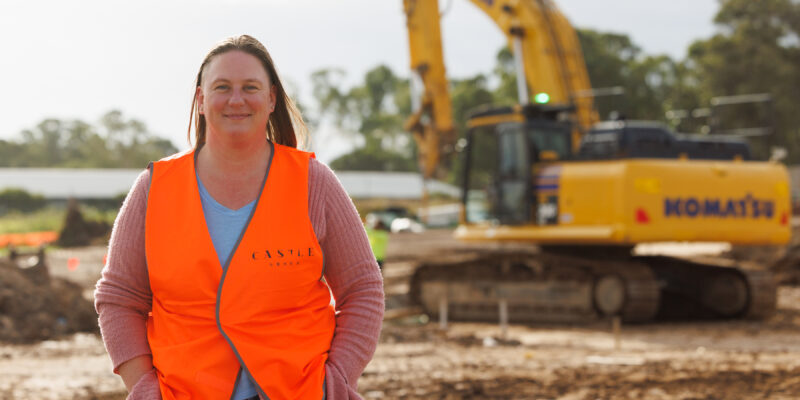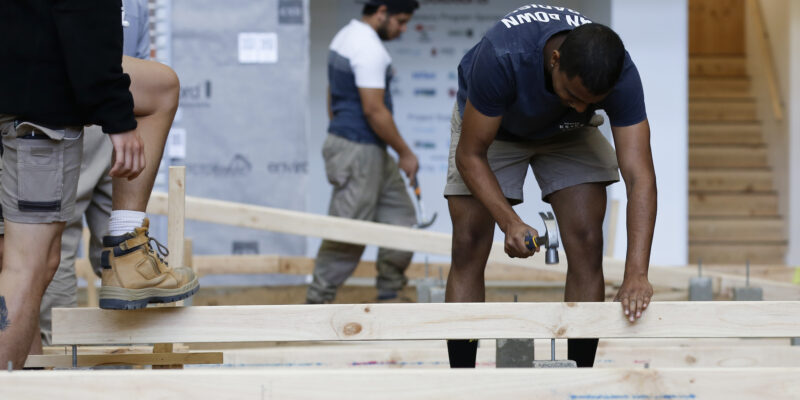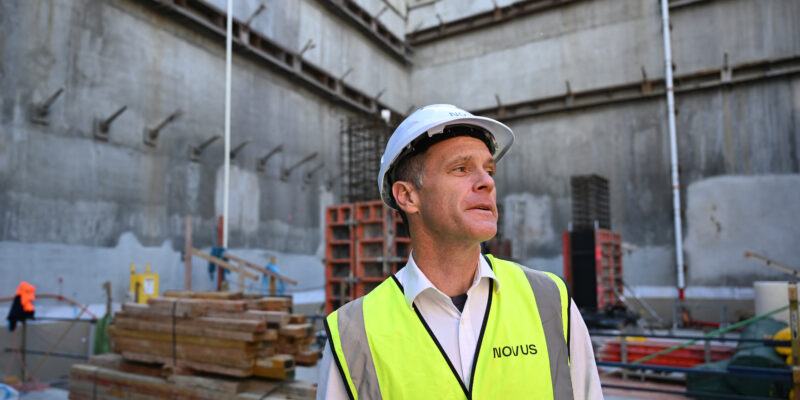All signs point to a continued property slowdown
Australia’s sluggish construction market is facing even more headwinds, industry leaders are warning as new data from the Australian Bureau of Statistics shows the number of building approvals heading in reverse.

AUSTRALIA’S sluggish construction market is facing even more headwinds, industry leaders say.
The warning comes as new data from the Australian Bureau of Statistics (ABS) shows the number of building approvals heading in reverse.
Brad Duggan – CEO at the country’s biggest builder Metricon – took the opportunity of being named number one builder to cast a stark message about the state of the nation.
“To be the largest builder in Australia with under 4,000 site starts it’s clear that the country is falling behind on delivering the homes that have been identified as essential,” Duggan said.
“We need to accelerate momentum in the industry.
“It’s time to move beyond the sole focus on social housing and tackle the bigger picture.”
That, he says, means cutting planning red tape, increasing access to land, growing the country’s trade base, scrapping discussions on tax changes impacting investors and superannuation funds, and crucially, addressing the cost-of-living crisis.
“These are the real levers to restore customer confidence and get people building again.”
The ABS data for building approvals showed the number of dwellings approved fell 6.1 per cent in August to 13,991.
That was after an 11 per cent rise in July.
The decline was fuelled by a 16.5 per cent fall in approvals for private dwellings excluding houses (such as townhouses and apartments), to be 6.1 per cent lower than one year ago.
This was mainly driven by a decline in high density apartment approvals. There were 1,214 apartments approved in nine or more storey blocks in August, down from 2,504 in July.
The Property Council’s Matthew Kandelaars said: “We need to increase the number of homes approved and ensure a strong pipeline of apartment supply, to drive towards our housing targets at scale.
The fact that the spring selling season is stuttering is also having an impact on confidence.
CoreLogic research director Tim Lawless said: “It’s definitely slowing everywhere, and it looks like Sydney is probably about to move into some level of a downturn, especially given the rise in stock levels, which are now above average.
“I’m actually surprised it hasn’t happened earlier, given the stretched affordability that we’re seeing in Sydney, so the market has been surprisingly resilient to a downturn.”
PropTrack’s senior economist Eleanor Creagh said that while prices were still rising, high interest rates, cost of living pressures, weak consumer sentiment and affordability constraints were having a significant impact.
“Buyers now have more properties to choose from, though uncertainty around the timing of interest rate cuts is likely also having an impact on the pace of growth,” she said.
“Prices are expected to lift through the typically busier spring selling season, albeit at a slower pace.”




